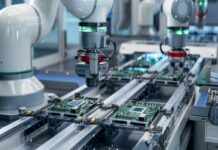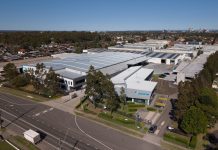
Naval Group has announced the launch of a new international Research Laboratory (IRL) in Adelaide that will focus on humans-autonomous agents teaming: an area of research at the interface of artificial intelligence, computer science, engineering, technology, human factors and psychology.
The French Australian Laboratory for Humans-Autonomous Agents Teaming, shortened to CROSSING, is a collaboration between the French National Centre for Scientific Research (CNRS), the University of Adelaide, Flinders University, the University of South Australia, French technological university IMT Atlantique, and Naval Group as the only industrial partner.
Each partner will bring complementary expertise to the research partnership.
The University of Adelaide’s Australian Institute of Machine Learning (AIML) will bring expertise in AI and machine learning.
In the field of interactive and virtual environments and human performance, the University of South Australia has expertise in sleep and fatigue analysis and the University of Adelaide in active vision.
IMT Atlantique has expertise and facilities in virtual and augmented reality and embedded and human-centric AI, and Flinders University in autonomous systems, human factors and industry 4.0 advanced manufacturing.
Industrial partner, Naval Group, will share its world-class expertise from areas including embedded intelligence, optimised architectures, unmanned vehicles, industry of the future and human performance measurement.
Professor Jean-Philippe Diguet, Director of the lab, said the CROSSING Lab will bring together leading French and Australian scientists to tackle important challenges in finding new ways for systems and humans to work together.
“The outcomes could provide significant advances in the way operators use control systems on ships, maintenance platforms in industry or services to assist within the home, and the way these systems are developed to assist and improve human performance to make work safer and more efficient,” Mr Diguet added.
Professor Anna Ma-Wyatt, from the University of Adelaide’s School of Psychology, who is Co-Director of the new lab, said the CROSSING Lab will provide an opportunity for South Australia to be at the forefront of research into frontier technologies highly relevant to future industries.
“At the CROSSING lab we will develop new ways for humans to work with robots and autonomous systems,” she said.
“Human operators will cooperate with high-level automata, robots or adaptive information systems able to produce knowledge and to explore the physical or informational environment on their own.”
The new lab was launched on Monday 22 February at the Art Gallery of South Australia.


















